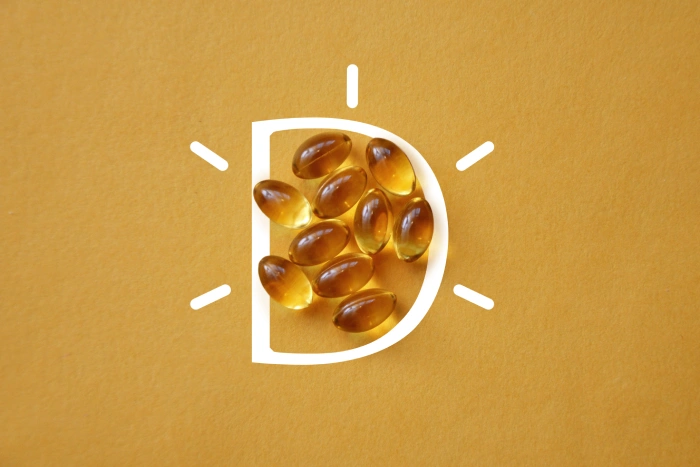Study Explores Natural Supplements’ Impact on Joint Health
A recent study has investigated the potential therapeutic effects of curcumin and vitamin D on knee osteoarthritis (OA) progression and associated pain. This research, conducted using a rat model, sheds light on the possible benefits of these natural supplements in managing this common and debilitating condition.
The experiment involved male Wistar rats divided into five groups: a control group, groups treated with curcumin (100 mg/kg/day) or vitamin D (25 µg/kg/day) individually, a combination group receiving both supplements, and a sham-operated group. The supplements were administered orally daily for a period of 12 weeks.
Throughout the study, researchers assessed pain behaviors, measured serum biomarkers, and examined knee histology. The results revealed that both curcumin and vitamin D independently reduced pain, with the combined treatment group showing enhanced analgesic effects.
Serum analysis demonstrated a reduction in pro-inflammatory cytokines and an increase in the anti-inflammatory cytokine interleukin-10 (IL-10) in the supplement groups. The antioxidative markers were partially restored by curcumin and vitamin D supplementation. Notably, the oxidative stress marker Cartilage Oligomeric Matrix Protein (COMP) showed a significant decrease.
Histological examination revealed preservation of joint architecture and cartilage integrity, along with reduced synovium inflammation in the groups treated with curcumin and vitamin D. These findings suggest a dual mechanism involving anti-inflammatory and antioxidant effects on knee OA progression and pain reduction.
The researchers conclude that these natural compounds show promise as potential therapeutic agents for knee OA. They suggest that curcumin and vitamin D supplementation may be beneficial in delaying knee OA progression and managing associated pain in clinical patient care.
Commentary by SuppBase columnist Alice Winters:

This groundbreaking study on the effects of curcumin and vitamin D in knee osteoarthritis management offers a ray of hope for millions suffering from this debilitating condition. As a health product commentator, I find the results both intriguing and promising, though it’s crucial to approach them with measured optimism.
Let’s start with the study’s strengths. The use of a rat model allows for controlled conditions and detailed histological analysis that would be challenging in human trials. The multi-faceted approach, examining pain behaviors, serum biomarkers, and knee histology, provides a comprehensive view of the supplements’ effects. The inclusion of both individual and combined supplement groups is particularly valuable, as it allows us to see potential synergistic effects.
The dosages used in the study are worth noting. The curcumin dose of 100 mg/kg/day is relatively high compared to typical human supplementation. For a 70 kg human, this would equate to 7,000 mg daily, far exceeding common dosage recommendations of 500-2,000 mg per day. The vitamin D dose of 25 µg/kg/day (equivalent to 1,000 IU for a 70 kg human) is more in line with typical supplementation. This discrepancy raises questions about the translatability of the results to human supplementation practices.
The dual mechanism of action – anti-inflammatory and antioxidant – is particularly exciting. Inflammation and oxidative stress are key factors in OA progression, and addressing both simultaneously could potentially offer more comprehensive relief than current standard treatments. The reduction in pro-inflammatory cytokines and increase in anti-inflammatory IL-10 is especially promising, as it suggests these supplements might help modulate the immune response in OA.
However, we must exercise caution in extrapolating these results to human patients. Rat models, while useful, don’t always perfectly mirror human physiology. The 12-week duration, while substantial for a rat’s lifespan, may not be indicative of long-term effects in humans, where OA typically develops over years or decades.
It’s also important to note that while the study shows promising results for pain reduction and joint preservation, it doesn’t claim to reverse existing damage. This underscores the potential of these supplements as preventive or early-stage interventions rather than as cures for advanced OA.
From a market perspective, these findings could significantly impact the supplement industry. Curcumin, derived from turmeric, is already a popular supplement, but this research could drive increased demand. Similarly, vitamin D supplements, long recommended for bone health, may see renewed interest from those concerned about joint health.
For consumers, it’s crucial to remember that supplements are not regulated as strictly as pharmaceuticals. Quality, purity, and bioavailability can vary widely between products. If considering these supplements for OA management, consumers should opt for high-quality, third-party tested products and consult with healthcare providers, especially given the high doses used in the study.
In conclusion, while this study presents exciting possibilities for natural OA management, it’s important to view it as a stepping stone rather than a definitive answer. Further research, particularly human clinical trials, will be necessary to confirm these effects and establish optimal dosing protocols. Nonetheless, for those suffering from OA or at risk of developing it, this research offers hope that natural, accessible supplements might play a role in preserving joint health and quality of life.



